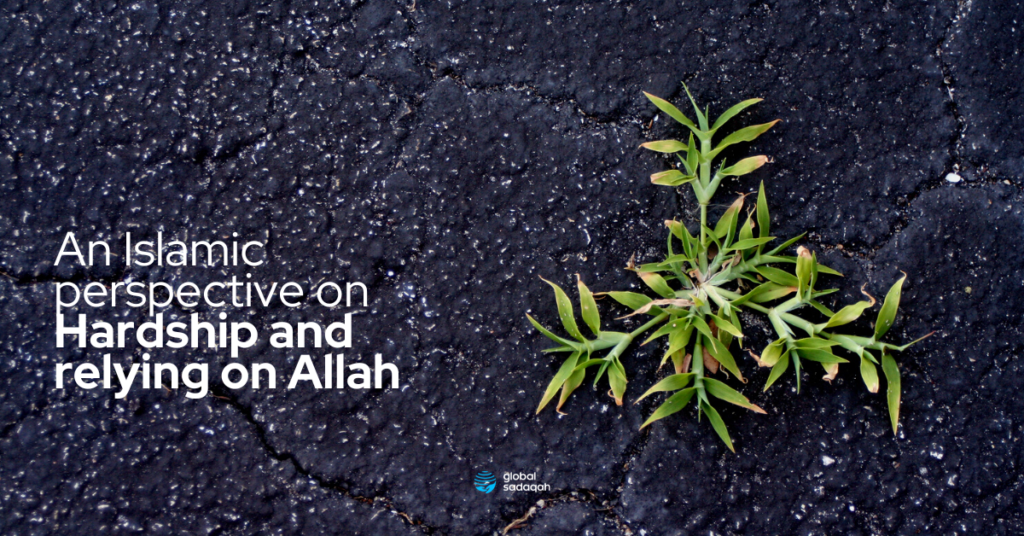The world is slowly recovering from the hardships that came with the Covid-19 pandemic. Governments and companies were pretty much shut down. People lost livelihood and lives, and their fortitude was tested in a way that humanity has rarely been tested before.
Such an event would test the resolve of any and every person in a way that the world has never seen before. There is no doubt that Muslims around the globe have been afflicted with catastrophes and doubts. Surely, such moments in our lives can cause us to wonder why the Almighty is testing us so.
The Islamic view of why Allah blesses us with hardships is an interesting one. As Muslims, our perspective on the struggles of life must be aligned with the general understanding of our existence in relation to the hereafter. In this regard, our will and determination to persevere must be based on our relationship with Allah and our willingness to be drawn closer to our Creator. Here are a few key aspects about hardships in Islam.
Related: 7 Powerful Du’as From the Quran
Hardships bring out the truths in us

Allah says in the Quran,
‘Do the people think that they will be left to say, “We believe” and they will not be tried? But We have certainly tried those before them, and Allah will surely make evident those who are truthful, and He will surely make evident those who are false.’ [Surah Al-‘Ankabut, 29:2-3]
The Almighty puts us through trials to see if we would follow or reject his teachings. There are simple solutions to every problem, but there is always the possibility that those solutions are forbidden, immoral, or evil, and that choosing them implies turning away from Allah’s teachings. Although the purer path may be more difficult, it is the one that will maintain us in his favour, which is why difficulties arise.
Allah assures His followers, “For indeed, with hardship [will be] ease” [Surah Ash-Sharh, 94-5].
Embrace His promise. Do not give up even if the pain seems never-ending and you feel worn out from carrying it all; there is relief and something even greater waiting for you just around the corner.
Even difficulties are not permanent. And those believers who persevere in their belief in Allah and practise patience in the face of adversity are then rewarded in ways that are beyond the comprehension of ordinary people.
Related: 10 Tips for Strengthening the Iman in Times of Hardship
These tests are meant to purify us
The Prophet (ﷺ) said: “No calamity befalls a Muslim but that Allah expiates some of his sins because of it, even if it were the prick of a thorn.” [Bukhari].
We can be struggling spiritually, sinning, believing it’s acceptable, and losing our morals. Even though we may like living in sin, difficulty is a blessing in our lives because it makes us realise that we have been leading impure lives. As a result, we turn to the correct and holy path.
Trials can replace misfortunes

Allah tells us: “Perhaps you dislike a thing and Allah makes therein much good.” [Surah An-Nisa, 4-19]
Misfortune does sometimes happen to us. We are given obstacles to overcome this unfortunate situation rather than being offered the simple solution. Even though the voyage is difficult, it is worthwhile if the final destination is pure and in the presence of the Almighty.
Trials and tribulations strengthen our faith
The Prophet (ﷺ) said:
“The people who face the most difficult tests are the prophets, then the righteous, then those following them in degree. A person is tried according to his religion. So if there is firmness in his religion, then the trial is increased, and if there is a weakness, then it is lightened. Verily a trial remains with a servant until he walks the earth having no sin left upon him” [Bukhari].
We can consider ourselves to be living a life of faith, and as a result, we might think that the happy life we lead is a reward for our faith. We develop arrogance and complacency. Then the Almighty brings us adversity. Our faith is ultimately strengthened when we become aware of how we might improve.
Allah rewards us through affliction

It’s crucial to keep in mind that, as Muslims, Allah has not abandoned us; rather, he desires for us to become nearer to him. Nevertheless, we must also seek professional assistance when necessary. For instance, when we are sick and visit a doctor to speed up recuperation. Similar to how you should get care from a qualified professional counsellor who shares your faith if you have a mental health concern.
Allah encourages us to seek help
Given the difficulties we may face every day, anxiety is something we cannot avoid. A disorder like anxiety doesn’t just appear out of the blue. Without our realising it, it gradually takes hold of us.
Depression is a condition that depresses us and makes us believe that life is no longer worthwhile. It gradually seeps into our systems and makes us into a person who is no longer enthused about life.
The fact that both of these mental illnesses are quite prevalent throughout the entire world and can affect anyone makes the situation much more concerning. Fortunately, by learning how to deal with anxiety and sadness, they may be overcome.
Related: 5 Tips to Achieve Istiqamah
More Actionable Steps to Overcome Hardships
1. Utilise technology to help you remember Allah.
If you’re feeling unmotivated in the mornings, mix your routine up and start your day with an Islamic lecture to learn something new about the Deen or to reinforce what you already know. By learning something new or participating in an enlightening conversation in the morning, you can feel prepared and ready for the day.
2. Recite one verse from the Quran every day
Build a slow and steady engagement with the Quran by beginning to incorporate it into your daily life. Some of us may be striving to strengthen ourselves in preparation for Ramadan so that we can read the entirety of the Quran during the holy month. To read one juz or even one surah a day can be intimidating for novices, especially if you’re not comfortable with your Arabic.
3. Study the Quranic tafseer in your own time
It’s crucial to comprehend and internalise the lessons of the Quran in addition to building your confidence when reciting it. By doing this, we are hearing from Allah and applying His teachings to our life. These teachings can direct us in our behaviours and ideals during both happy and joyful moments as well as depressing and upsetting periods.
The aspect of hardships are inseparable from this life and plays a large role in the tests that we experience throughout our journey as we draw closer to the hereafter. In the end, our decisions and perspectives on such calamities will determine how well we fare once we have to face our Almighty Creator.

